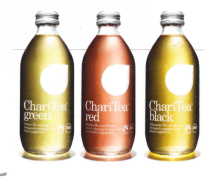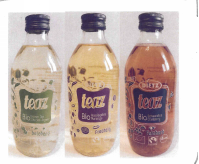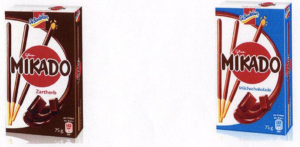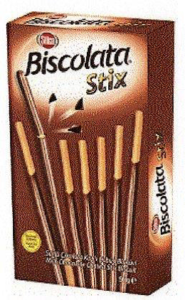The Cologne Higher Regional Court was asked to decide on an alleged infringement of German unfair competition law by the look of a trade dress of tea drinks bottles. In summary, the court rejected the claim since the bottles of the parties showed different product and manufacturer names (judgment of 28 April 2017, Case 6 U 136/16).
The plaintiff distributes a range of tea drinks as depicted on the left. The defendant offers the following tea drinks as shown on the right (three bottles each respectively).
The plaintiff argued that the defendant had copied the key features of the design of the plaintiff’s bottles. Therefore, the consumers would be confused pursuant to Sec. 4 No. 3 of the German Act against Unfair Competition (UWG). In brief, that provision, which is not based on European law, requires (i) that the plaintiff’s products show that their specific design is capable of indicating their commercial origin (so called “competitive individuality“), (ii) the defendant’s products are an imitation of the plaintiff’s products, and (iii) there are special circumstances that cause the imitation to appear an unfair commercial practice (such as a risk of or actual confusion regarding the commercial source of the imitation).
On one hand, the court confirmed that the plaintiff’s products show a specific design worthy of protection. Even though the court did not explicitly say so, it seems that the specific design was rather in the range of products than in each individual product. The German Federal Supreme Court had already decided before, in a case concerning suitcases with a specific ribbed design (decision of 30 April 2008, Case I ZR 123/05), that common design features of a range of products could benefit from protection under unfair competition law, even if the individual element (the groove-design of any one suitcase) did not reach the threshold. Further, the court held that the defendant’s products were an imitation of the plaintiff’s products. On the other hand, the court assessed design of the plaintiff’s products only as medium and the extent of the usurpation as low. Therefore, the different product and manufacturer names “ChariTea” (plaintiff) vs. “teaz” and “DIETZ” (defendant) were apt to avoid a deception of consumers, given the additional differences between the labels.
This decision once again illustrates how difficult it is to enjoin copycat products, at least in relation to foodstuffs. If the packaging of the parties show different company names or trademarks (in particular if they link to the manufacturer of the product), the courts tend to deny an infringement. Accordingly, the plaintiff in the decision “Keksstangen” (judgment of 23 October 2014, Case I ZR 133/13) also lost the case. De Beukelar sued a competitor based on its Mikado biscuit sticks. The competitor presented nearly identical biscuit sticks (see right side) at the International Sweets and Biscuits Fair (ISM), a specialized fair in Germany.
The court decided that there was neither an anti-competitive deception as to the origin nor was unfair advantage taken of the repute, since the relevant expert groups were not misled due to their special expertise, as they would pay attention to the different manufacturer names shown on the packaging (in that particular case the finding may have been different in relation to consumers, but that question was not to be decided by the court).
So what is the solution for a plaintiff? Probably not the filing of the plain packaging as a trade mark, as such registrations are increasingly difficult to obtain (just see CJEU Knoppers) and equally as difficult to enforce. In most cases, design or unfair competition law will still be the most appropriate tools. Unfair competition protection often requires some sort of reputation of the product that is being copied, coupled with a high degree of similarity. The reason for this is that German courts are keen to emphasize that if a product is not protected by an intellectual property right, it can – in principle – be copied freely, unless there are specific circumstances justifying an exception from this basic rule.
_____________________________
To make sure you do not miss out on regular updates from the Kluwer Trademark Blog, please subscribe here.
Kluwer IP Law
The 2022 Future Ready Lawyer survey showed that 79% of lawyers think that the importance of legal technology will increase for next year. With Kluwer IP Law you can navigate the increasingly global practice of IP law with specialized, local and cross-border information and tools from every preferred location. Are you, as an IP professional, ready for the future?
Learn how Kluwer IP Law can support you.






